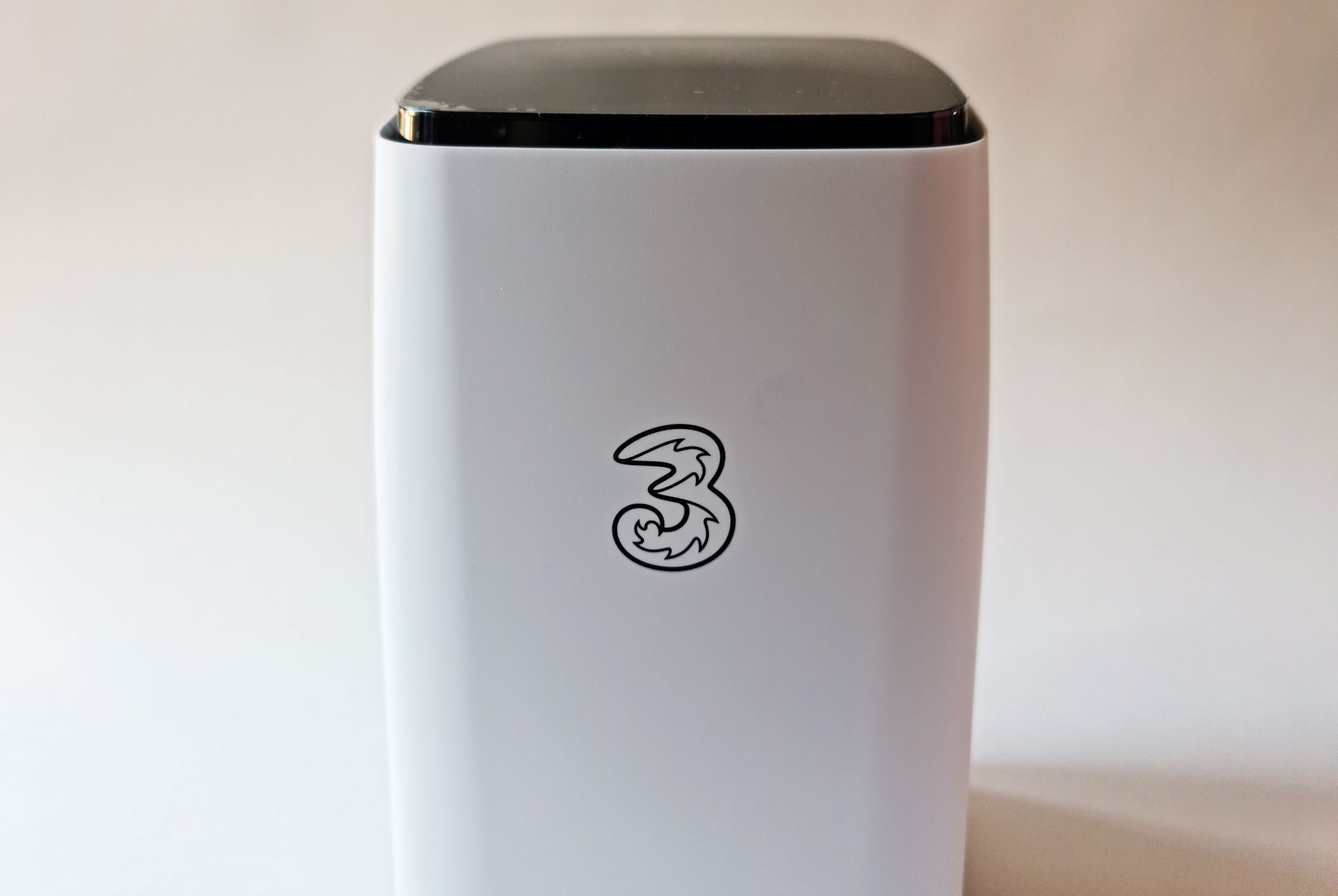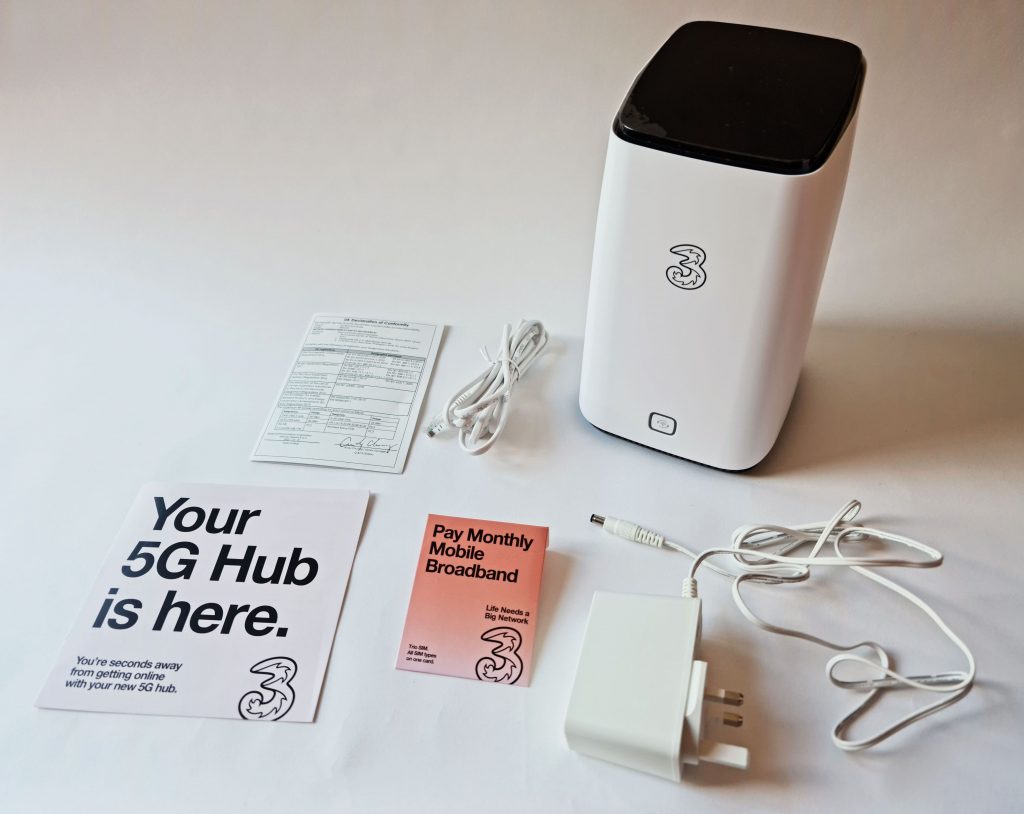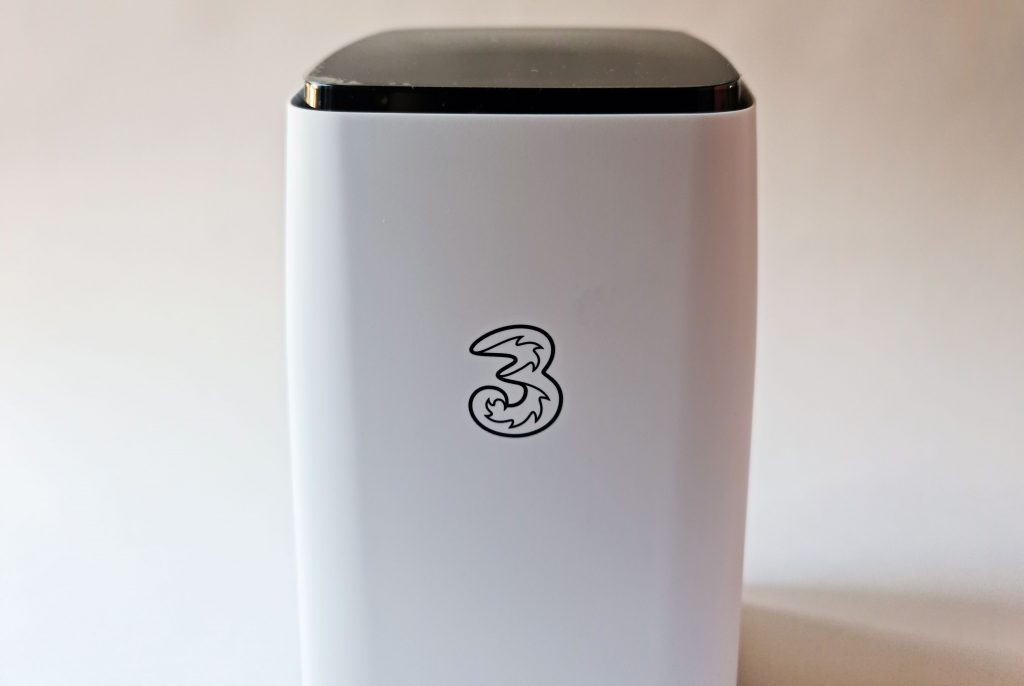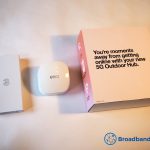If you’re considering buying a 5G internet plan, you might be wondering how this technology compares to a fixed fibre broadband connection.
In this guide, we’ve explained the differences between 5G and fibre broadband, based on our experience testing services such as Three’s 5G Hub, as well as BT, TalkTalk, and Plusnet fibre broadband.
Let’s get started.
Price
The big advantage 5G has over fibre broadband is it is often a lot cheaper, especially if you can get Three Home Broadband at your address.
With Three, you can expect to pay about £25 per month for a fast home internet connection. To get the same speeds with fibre, you’ll normally have to pay at least £30-£35 per month.
At the moment, Three is the cheapest 5G internet provider on the market, and they offer fast download speeds, in our experience.
Apart from having low monthly costs, 5G broadband is normally cheaper to set up as well, as we’ll discuss in the next section, meaning it often comes with a lower upfront fee.
Getting set up
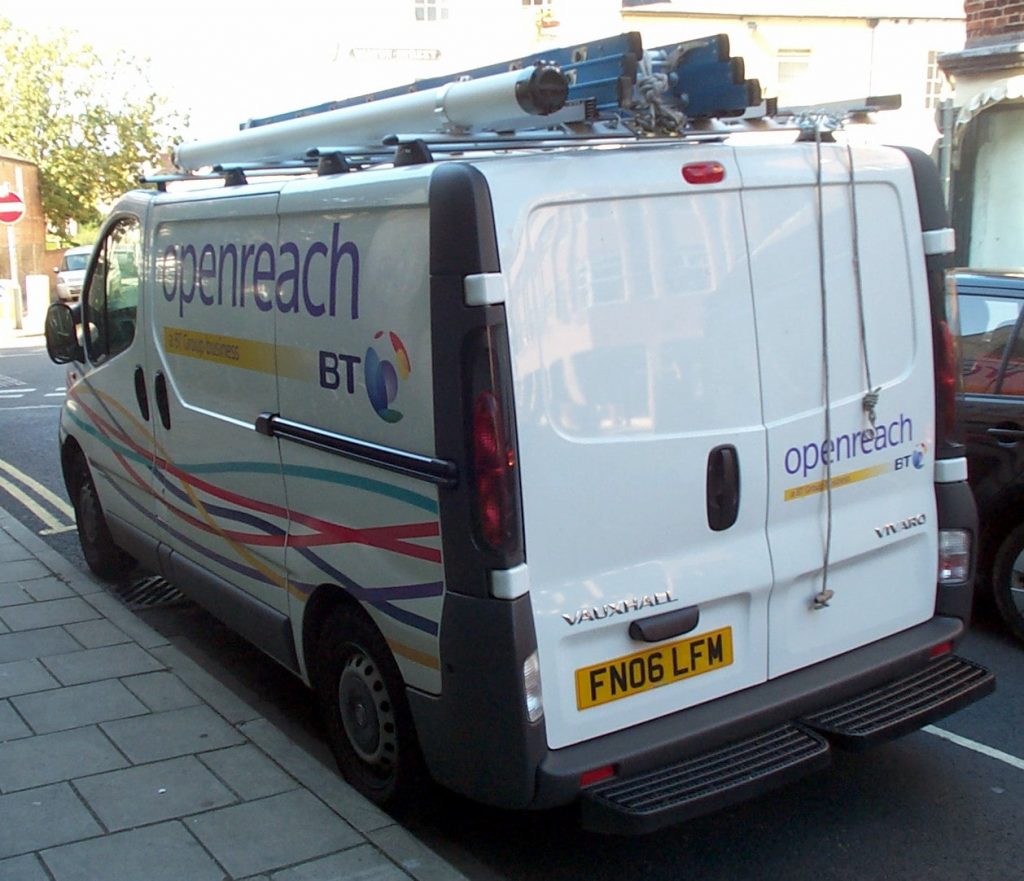
Installing fibre broadband can be a bit complex. This is especially true if you are switching to a provider that operates its own independent fibre network, separate to Openreach, such as Virgin Media.
Once you place your order, an engineer will normally need to come and get you connected, if it’s your first time using fibre broadband at your address. You’ll need to book a time, and the technician will spend an hour or so installing your router and modem (if necessary), and switching on your connection.
With 5G internet, it’s a bit more like unboxing and setting up a new phone. Once you receive the Wi-Fi router in the mail, you’ll be able to set it up yourself and get online in less than an hour.
Normally, you just need to:
- Insert the provided SIM card into the router.
- Plug in the router, turn it on, and wait for it to find 5G signal.
- Connect to Wi-Fi, and try some speed tests. Try repositioning the router to find the place in the house with the best signal.
- Once you’ve found a good spot, you’re ready to begin using the internet.
Read our review of the 5G Hub to learn more about what’s involved in setting up a 5G router.
Download and upload speeds
On average, a 5G internet plan with a router like the Three 5G Hub should offer download speeds of about 300-500 Mbps on average, with upload speeds ranging from 12-25 Mbps.
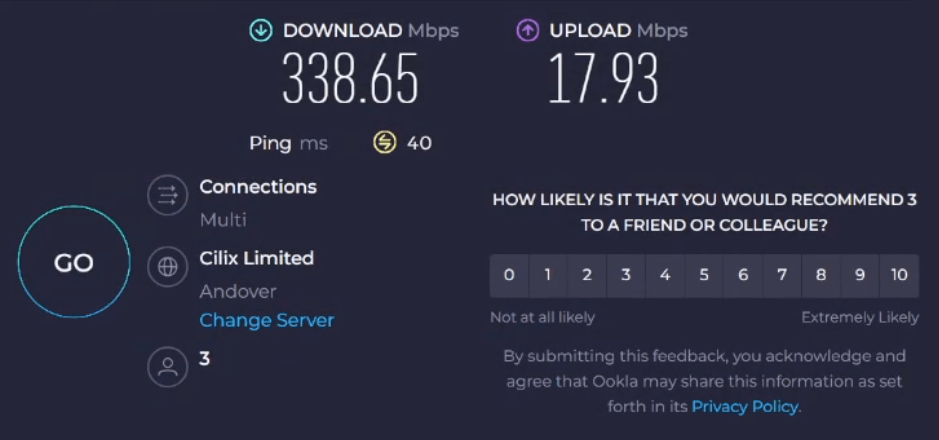
On the other hand, fibre broadband can be faster, depending on the technology available in your area.
If you can get full fibre broadband at your address, you should be able to get download speeds of at least 900 Mbps, with an upload speed of at least 50-100 Mbps, if you pay for the fastest-available plan.
You might even be able to get faster speeds using Virgin Media or EE Broadband in some locations. Currently, 1,600 Mbps and 2,000 Mbps (1.6 Gbps and 2 Gbps respectively) technology is being rolled out in some parts of the UK.
However, if you can only get superfast fibre broadband in your area, you’ll only be able to get download speeds of 30-70 Mbps or so.
Use our postcode checker to find out what speeds you can get with fibre broadband at your address.
Also, although fibre home broadband is often faster, 5G internet is much cheaper on a per-megabit basis. Buying a 300-500 Mbps fibre plan will generally be a lot more expensive than buying a wireless router that offers similar speeds, like the Three 5G Hub.
Latency/ping
One advantage of fibre broadband over 5G is it will typically have a lower latency (also known as ping).
This means that small packets of data can be sent and received more quickly on a fibre broadband connection.
Having a low latency is important for gamers. If your ping is too high, you’ll experience lag when playing online, because information about your movement, and other players’ movement, won’t be transmitted fast enough to the game server to ensure a good experience.
However, for most people, having a low latency is not an issue. It doesn’t affect web browsing, watching videos, or using social media. Having a high ping can affect Zoom and Microsoft Teams calls, but these applications are much less ping-sensitive than online gaming.
Also, even if you do play online games, from our testing, 5G internet still offers a good experience, even in more competitive, ping-sensitive games like Rocket League.
We found that while our fibre connection normally has a ping of about 10ms, we received a ping of about 35-45ms using 5G.
This is significantly higher, but when plugged into our 5G router using an Ethernet cable, we still had a good experience playing online games.
We also found that ping spikes are not common when using wireless broadband, meaning that the experience was generally very smooth.
Consistency and dropouts
Fibre broadband is normally a bit more consistent than using 5G. However, both technologies can experience issues with slow speeds on occasion.
Fibre and 5G internet can both experience network congestion at times. This occurs when lots of other people in your neighbourhood get online at the same time, typically in the evenings when everyone gets home at the end of the day, resulting in slow speeds across the entire network.
However, 5G broadband also suffers a bit simply because it uses wireless technology, which can experience interference from weather and other factors.
This means that with a 5G connection, you can expect your speeds to fluctuate between 300-500 Mbps or thereabouts over the course of a day. This isn’t the case with fibre broadband, unless you live in an area with severe network congestion.
Data allowances
In the UK, fixed-line broadband plans are no longer sold with a data limit.
This means that if you buy fibre broadband, you won’t have to worry about your data usage. You effectively have unlimited data, as long as you don’t use your home broadband connection to do something like hosting web servers, or otherwise use it for business purposes.
However, the same isn’t always true of 5G broadband. Many 4G/5G internet plans come with a monthly data usage limit.
You will need to specifically look for 5G SIMs that come with unlimited data, unless you don’t mind having a 100-200GB monthly limit. Fortunately, there are good 5G broadband deals that come with unlimited usage, that aren’t too expensive, like the Three 5G Hub.
Flexibility
5G internet has a huge number of advantages over fibre broadband when it comes to flexibility.
- Often, you can get 5G broadband on a month to month basis – this is true of Three 5G internet. You don’t have to commit for 18 or 24 months like you do with fibre internet, although you can do this if you want to reduce your monthly bill.
- With some 5G internet deals, you can take your router when travelling and get online with it anywhere in the UK with 4G or 5G signal. This isn’t possible with fibre, since the connection is fixed. Three currently allow you to do this, but Vodafone and EE don’t. You may even be able to get online if you go overseas, if you buy a foreign 5G SIM card to use with your router.
- Since mobile broadband SIMs sometimes come with a data limit, if you don’t get online much, you might be able to save money by buying a plan with a 100GB or lower limit. With fibre, you always have to pay for unlimited data.
- Because it’s so easy to get set up, most 5G broadband deals come with a return policy. With Three for example, you can test out their router for 30 days, and decide to return it to them if you’re not satisfied, allowing you to test and see what speeds you get with 5G before you commit for the long term. This isn’t normally possible with fibre internet, although some providers like Hyperoptic do offer month-to-month contracts.
Conclusion: which should I choose?
5G broadband is a good choice if:
- You want fast download speeds for a much cheaper price than what you can get with fibre broadband.
- You can only get superfast fibre broadband where you live, and 5G offers the fastest speeds in your area.
- Switching to fibre broadband would involve joining a provider like Virgin Media, and you want to avoid a complex setup process.
- You want a flexible, portable internet connection, such as in a caravan, or you just want to avoid locking into a long-term contract.
On the other hand, you might prefer to pay more for fibre broadband if:
- You live in an area with ultrafast fibre, and want the fastest-possible download and upload speeds.
- You don’t mind paying more for more consistent download speeds, assuming you don’t suffer from network congestion in your area.
- You’re a gamer, and want the lowest possible ping.
Overall, while 5G isn’t perfect, it offers a fast, cheap, straightforward way of getting online, which is suitable for most households – even if you play online games.
If you’re not sure whether to choose fibre internet or 5G broadband, leave a comment below, and we’ll help out.
About the author

Tyler is the co-founder of Broadband Savvy. He has been helping people improve their broadband connectivity since 2018 by writing about fibre broadband and mobile broadband providers, as well as creating tutorials to help people improve their broadband speeds and Wi-Fi signal.
Tyler is responsible for the majority of buyer’s guides and broadband reviews published on Broadband Savvy. He has a wealth of experience testing and reviewing different broadband tariffs, including fibre internet plans, as well as 4G and 5G broadband deals. He is responsible for testing and evaluating Wi-Fi routers, performing speed and latency tests, and comparing the value for money of different broadband providers on the market in the UK.
Before co-founding Broadband Savvy, Tyler had a long history of tinkering with computers. He built his first PC at the age of 12, and since then, he’s become obsessed with all things networking and internet-related. He’s a massive gamer, loves Rocket League, and also plays Sunday League football.

